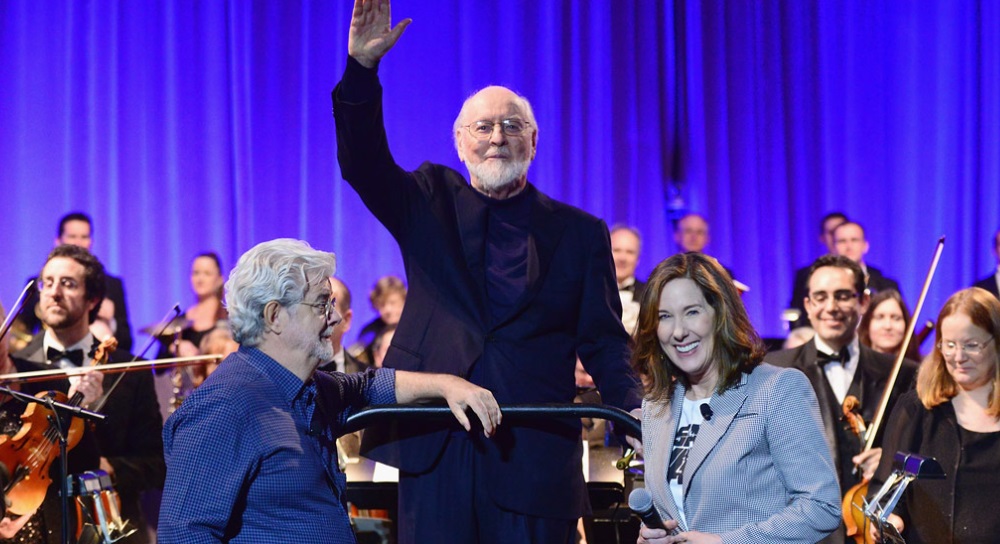He’s been nominated for 52 Academy Awards, winning 5 – only Uncle Walt has more nominations and apart from the handful of times he was competing against himself, he should have won them all – and today he celebrates his 90th birthday. Send your best wishes to the Maestro John Williams, a veritable hit machine of memorable music with a career spanning back to the late 50’s and a collection of iconic themes that will far outlive us all.
With 52 Oscar nominations, he is the second most-nominated individual after Walt Disney in Academy Awards history. He’s won five Oscars over his impressive career: “Fiddler on the Roof” (1971), “Jaws” (1976), “Star Wars” (1977), “E.T. the Extra-Terrestrial” (1982) and “Schindler’s List” (1993). His multiple nominations have been split through various inceptions of the original score category, including best scoring of music – adaptation or treatment, and when it was divided between drama and comedy or musical. He’s also been recognized for his contributions to multiple original songs, which is one category in which he hasn’t won.
In addition, Williams has won 25 Grammys, seven BAFTAs, and three Emmy Awards. However, he has yet to win a Tony to complete his EGOT status. He’s also been honored with an honorary doctorate of music from Berklee College of Music and Boston College and several lifetime achievement awards, including AFI. Many of his most acclaimed and popular scores have been under the directorial guidance of filmmakers such as Steven Spielberg, George Lucas, Richard Donner and Chris Columbus.
Variety celebrate the big day with their own list of the ten greatest John Williams scores, with one track representing each movie. No prizes for guessing which one was number one.
StarWars.com also looked at the great mans birthday, with composers Michael Giacchino, Ludwig Göransson, John Powell and Kevin Kiner explaining just why Williams is so important to music.
Michael Giacchino (Rogue One: A Star Wars Story)
“Listening to John’s music is not only a masterclass in film composing and storytelling, but John is an example of someone who has taken his talent and passion to transform other parts of the musical world, in particular his work in the classical arena that not only gave us pieces outside of film music, but his time at the Boston Pops has helped open the door for the acceptance of film music in the concert world, something for which I am very grateful.”
Ludwig Göransson (The Mandalorian)
“John Williams is the most successful and influential film composer of all time. In fact, I don’t know any other composer whose music has reached so many people across all ages in every corner of the world. It’s pure magic how his music becomes so instantly relatable and therefore also finds life outside the films and cinemas.”
John Powell (Solo: A Star Wars Story)
“For me, he actually transcends ‘film scoring,’ and he is simply one of the great composers of orchestral music. I’ve said this before, having been privy to seeing a little of his process — I realized he is not, in some way, unusual or impossibly different from all other composers. He’s using the same techniques, the same rules, the same approaches as everyone else. He’s simply better than everyone else.”
Kevin Kiner (Star Wars: The Clone Wars, Star Wars Rebels, and Star Wars: The Bad Batch)
“The first time I remember hearing a John Williams score was watching Star Wars in Westwood California where I was attending UCLA. I remember thinking, ‘How does he make that sound?’ That and the Superman score started me on a life-long quest to unravel his secrets and find my own path to making my own mysteriously wonderful sound.”



